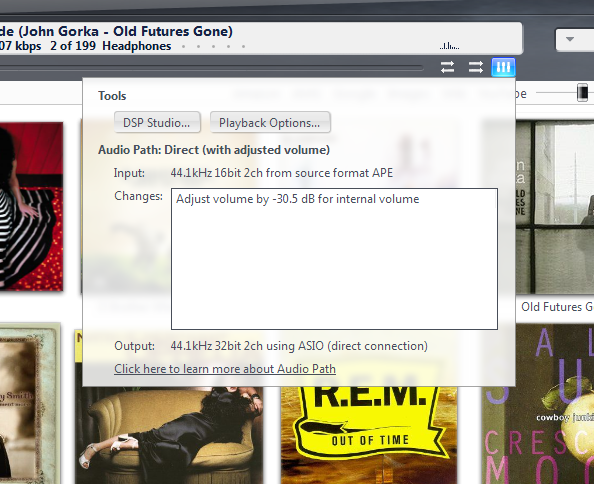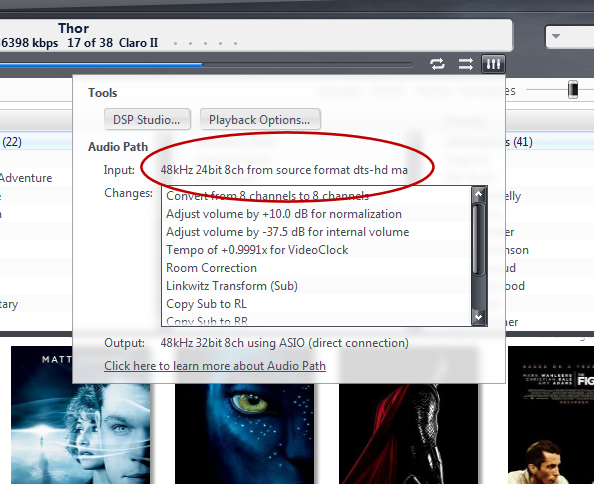Audio Path: Difference between revisions
Jump to navigation
Jump to search
No edit summary |
No edit summary |
||
| Line 4: | Line 4: | ||
If no changes are made to the signal and a high-quality output is used, the output will be called 'Direct'. With the Noire skin, the DSP button will change to blue in this case. |
If no changes are made to the signal and a high-quality output is used, the output will be called 'Direct'. With the Noire skin, the DSP button will change to blue in this case. |
||
To view the Audio Path, mouse-over the DSP button at the top-right of the program. |
|||
==Example Images== |
|||
==Examples== |
|||
Direct playback (with volume): |
|||
[[Image:audio_path_direct.png]] |
[[Image:audio_path_direct.png]] |
||
Blu-ray playback (with DTS-HD decoding): |
|||
[[Image:audio_path_dts_ma.png]] |
[[Image:audio_path_dts_ma.png]] |
||
Latest revision as of 18:40, 27 September 2012
Overview
Audio Path describes the complete path that audio travels. Any and all changes to the signal are listed in the order that they are performed.
If no changes are made to the signal and a high-quality output is used, the output will be called 'Direct'. With the Noire skin, the DSP button will change to blue in this case.
To view the Audio Path, mouse-over the DSP button at the top-right of the program.
Examples
Direct playback (with volume):
Blu-ray playback (with DTS-HD decoding):

